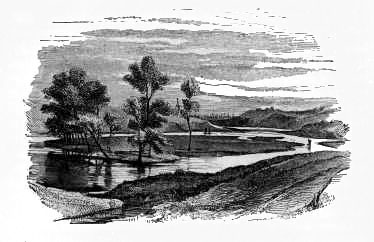King James II and Ireland

Scene of the Battle of the Boyne
Accession of James II.—Position of Public Affairs—Birth of an Heir—Landing of William of Orange—Arrival of King James in Ireland—The Siege of Derry—Cruelties of the Enniskilleners—Disease in Schomberg's Camp—The Battle of the Boyne—James' Defeat and Disgraceful Flight—The Siege of Athlone—The Siege of Limerick—Marlborough appears before Cork—William raises the Siege of Limerick and returns to England—The Siege of Athlone, Heroic Valour of its Defenders—The Battle of Aughrim—Surrender of Limerick.
[A.D. 1688—1691.]

ING JAMES' accession again raised the hopes of the Catholics, and again they were doomed to disappointment; while the Protestants, who had their fears also, soon learned that policy would bend itself to popularity. Colonel Richard Talbot was now raised to the peerage as Earl of Tyrconnel, and appointed Commander-in-Chief of the forces, with an authority independent of the Lord Lieutenant. His character, as well as that of his royal master, has been judged rather by his political opinions than by facts, and both have suffered considerably at the hands of a modern historian, who has offered more than one holocaust to the manes of his hero, William of Orange.
The moderate and cautious Clarendon was appointed Viceroy, and did his best to appease the fears of the Protestants; but he was soon succeeded by Tyrconnel, whose zeal for Irish interests was not always tempered by sufficient moderation to conciliate English politicians. He had fought against O'Neill; he had opposed Rinuccini; he had served in the Duke of Ormonde's army; he had helped to defend Drogheda against the Republicans, and had lain there apparently dead, and thus escaped any further suffering; he was of the Anglo-Irish party, who were so faithfully loyal to the crown, and whose loyalty was repaid with such cold indifference; yet his virtues have been ignored, and Macaulay accuses him of having "adhered to the old religion, like the Celts," which was true, and of " having taken part with them in the rebellion of 1641," which was not true.
James commenced his reign by proclaiming his desire for religious liberty. Individually he may not have been much beyond the age in opinion on this subject, but liberty of conscience was necessary for himself. He was a Catholic, and he made no secret of his religion; he was, therefore, obliged from this motive, if from no other, to accord the same boon to his subjects. The Quakers were set free in England, and the Catholics were set free in Ireland. But the Puritan faction, who had commenced by fighting for liberty of conscience for themselves, and who ended by fighting to deny liberty of conscience to others, were quite determined that neither Quakers nor Catholics should worship God as they believed themselves bound to do. Such intolerance, unhappily, was not altogether confined to the illiterate. Coke, in a previous generation, had declared that it was felony even to counsel the King to tolerate Catholics; and Usher, that it was a deadly sin. The King had neither the good sense nor the delicacy of feeling to guide him through these perils. His difficulties, and the complications which ensued, belong to the province of the English historian, but they were not the less felt in Ireland.
